Innovation Economics
University of Bozen-Bolzano
April 2025
Basic info
How to reach me: email (ncampigotto@unibz.it) or Microsoft Teams
Office hours: by appointment, either in person (office I307) or on Teams
Course materials: add link here. No textbook, only journal articles and not-yet-published working papers
Exam: TBD, probably a single open-ended question
Lecture roadmap
| 📆 Day | 🕐 Time | 🏫 Where |
|---|---|---|
| April 24 (Thu) | 10-12 | E322 |
| May 6 (Tue) | 9-13 (including experiment) | NOI F1.2.21 |
| May 7 (Wed) | 16-19 | NOI F1.2.21 |
| May 8 (Thu) | 16-19 | C3.06 |
Course content
This module is entirely devoted to the economic and behavioural consequences of Artificial Intelligence (AI) diffusion
Some questions we will explore:
- What are the consequences of AI on human productivity, learning, creativity, and trust?
- Can AI impact market competition?
- How does AI affect the labour market?
No definitive answers! This field of research is still largely in its infancy and AIs are evolving rapidly
Course content (cont’d)
We will take a mixed approach, combining theory, experiments, and empirical evidence
On May 6 (Lecture 2), I will ask you to partecipate in a toy laboratory experiment. Please come to class and bring your fully charged laptop. The winner gets a prize!
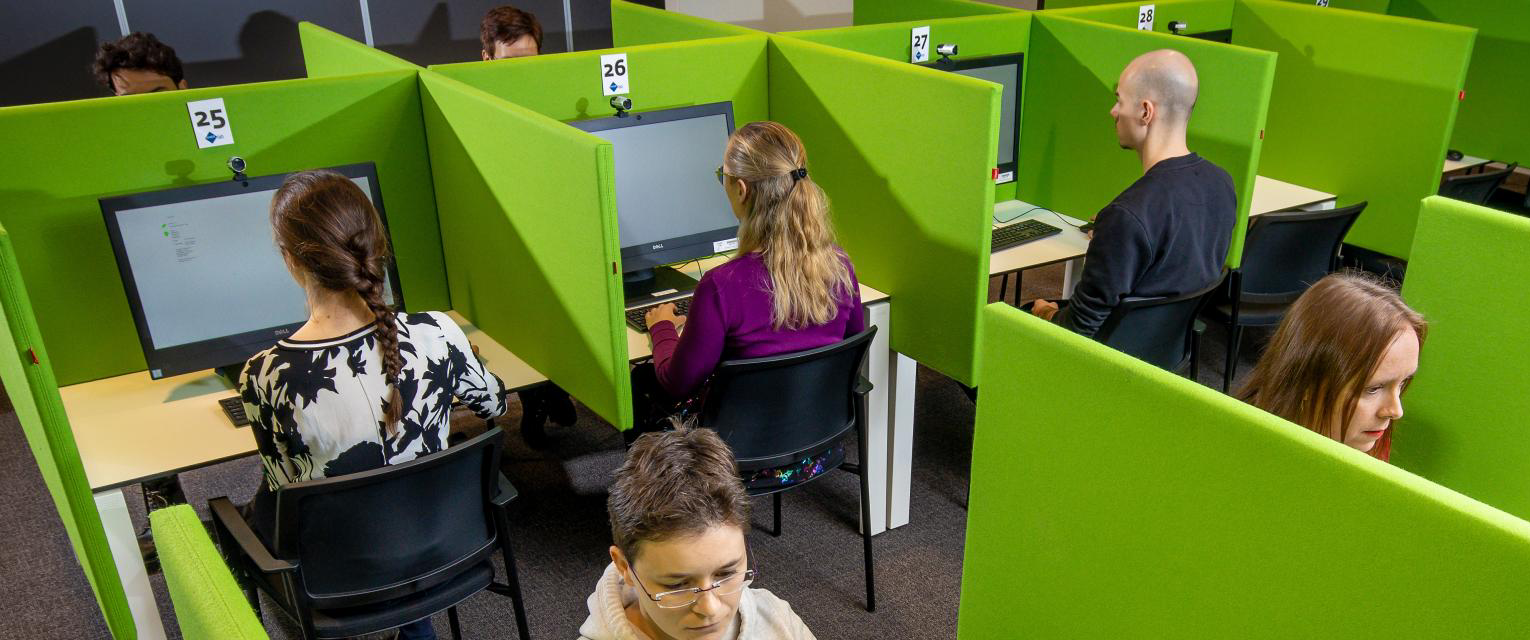
An icebreaking survey
📝 As a warm-up exercise for our discussion, I would like you to participate in a survey
👤 The survey is completely anonymous and there are no right or wrong answers, so please answer truthfully
⏰ We are not in a hurry, so feel free to take your time to think about your responses
🚫 Please refrain from searching for information online before submitting your answers
Let’s begin
- Go to https://tinyurl.com/26faekw6 or scan the QR code below
The survey

Conducted by think tank PEW Research on a representative sample of US citizens and a sample of experts in the field of AI
Let’s discuss your responses and compare them to those from the original survey
To read the complete report, click HERE
Original survey results (1)
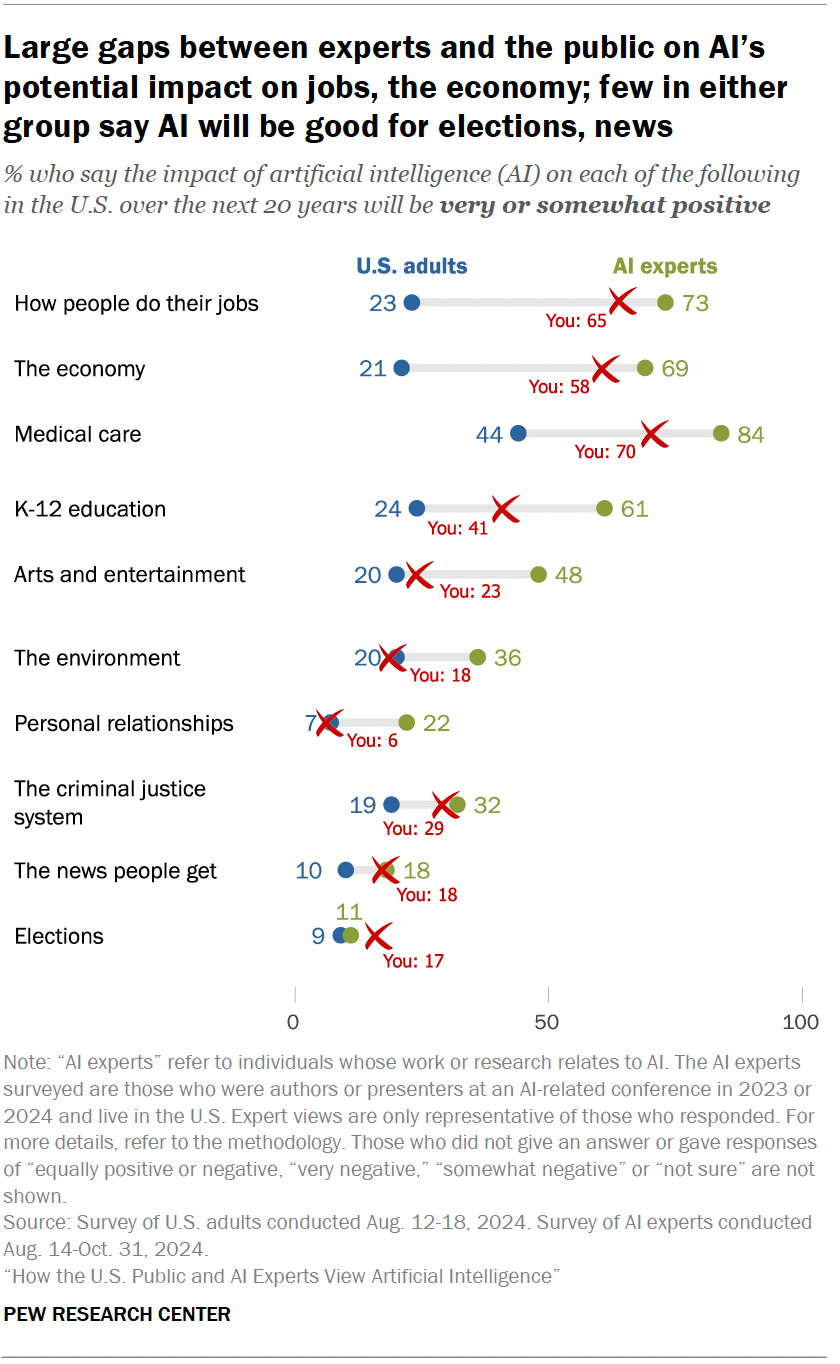
Original survey results (2)
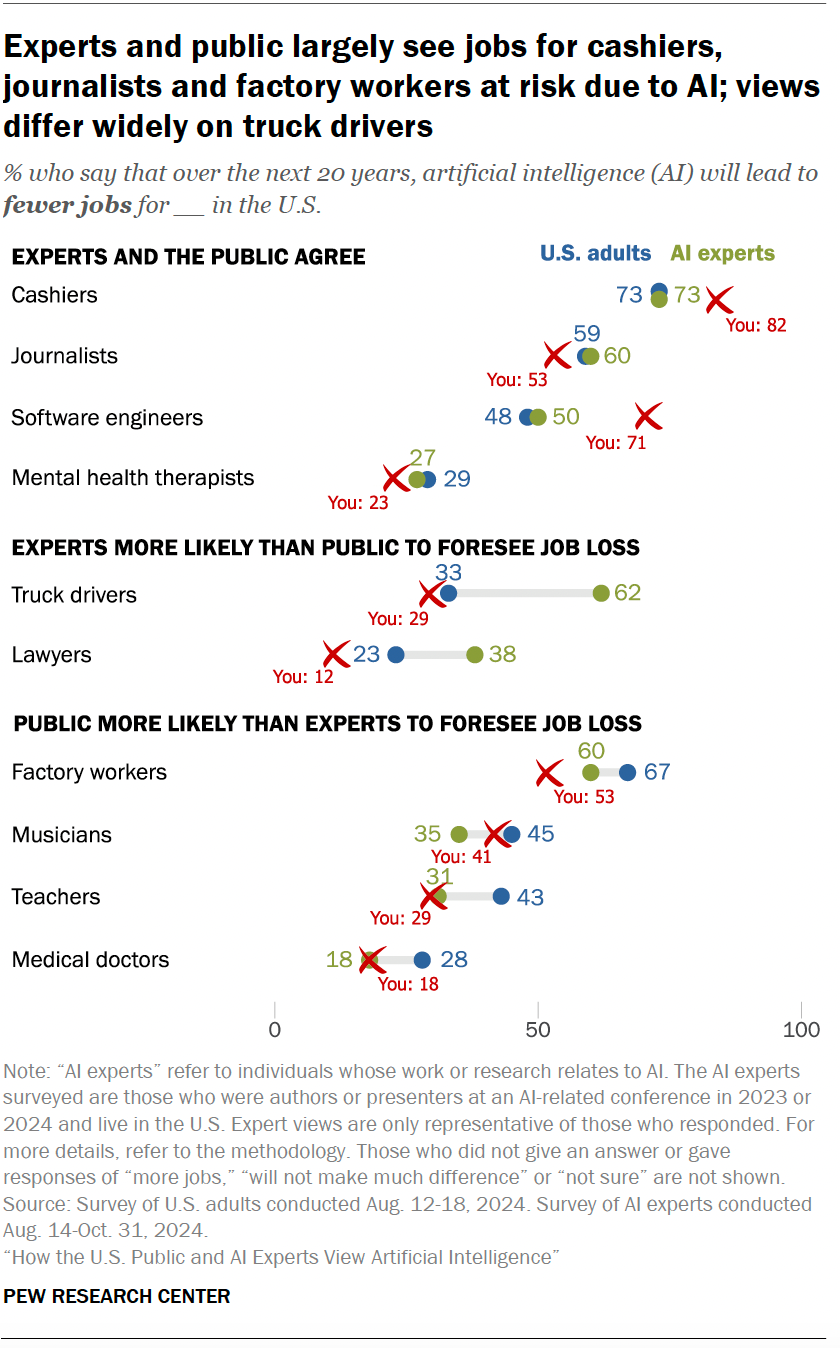
Original survey results (3)
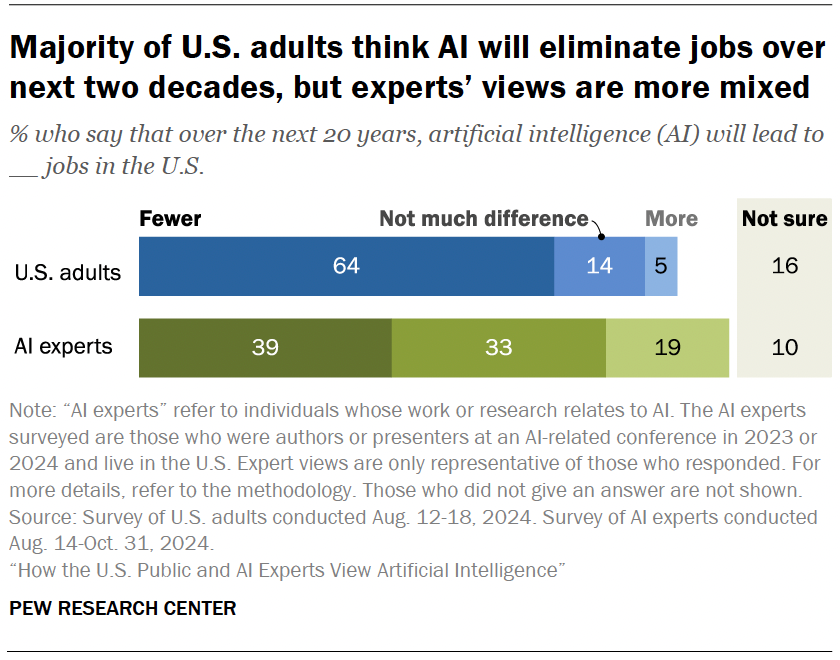
- Your results
- Fewer: 53
- Not much difference: 29
- More: 0
- Not sure: 18
Original survey results (4)
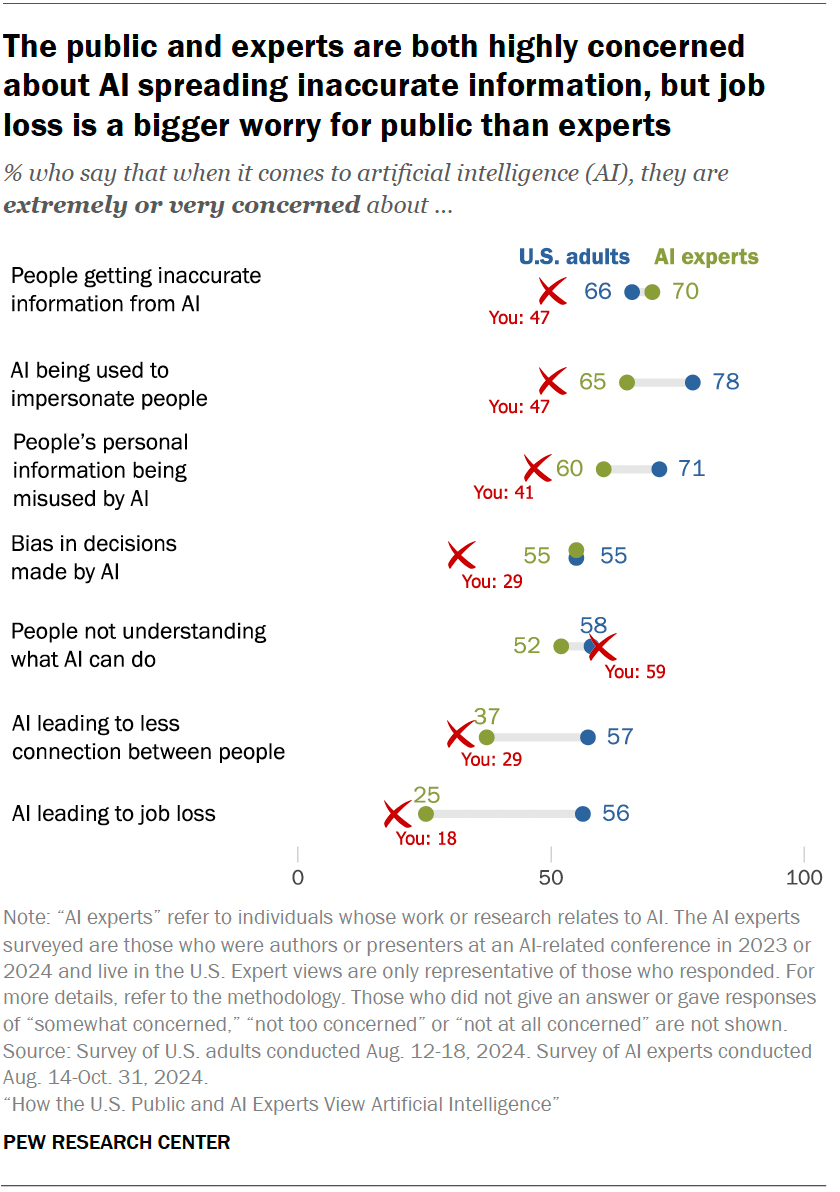
Original survey results (5)
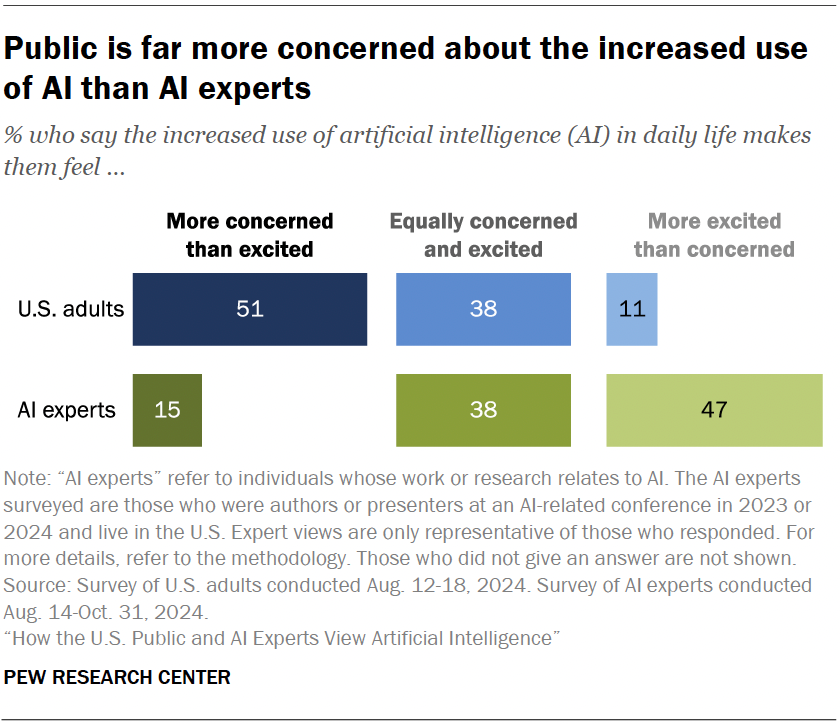
- Your results
- More concerned than excited: 35
- Equally concerned and excited: 59
- More excited than concerned: 6
Original survey results (5, cont’d)
- Feel free to share here your reasons for concern and excitement about the increased use of AI in daily life
#1
Education of people will suffer.
#2
I cannot imagine life without AI anymore, I don’t know where it’s heading but I’m curious to see.
#3
I get excited cause I’m impressed by the power and the ability of AI’s tools, but concerned because by seeing that I slowly realize it could easily overtake humans’ contribution to labour (general).
#4
My best friend is doing a PhD in AI. Almost no one understands what LLM actually do.
#5
I am excited because I know that it could make my life easier but I am concerned about becoming lazier and about my relationships being affected by it.
#6
Misuse and easy learning.
#7
people won’t study that much anymore, abilities like writing and creative jobs in general will lose importance and creativity in general won’t be appreciated that much anymore.
#8
AI can have a great impact if its used right. It can be very useful for jobs and automate tasks. In my opinion AI can be very dangerous in terms of its influence on fake news, its will be much easier to fake news and can be used in a very bad way. Therefor there should be new regulations to keep track of that.
#9
I think AI is a Tool that can help, if you use it correctly. I think, if someone has bad intentions, AI is a dangerous tool.
Original survey results (6)
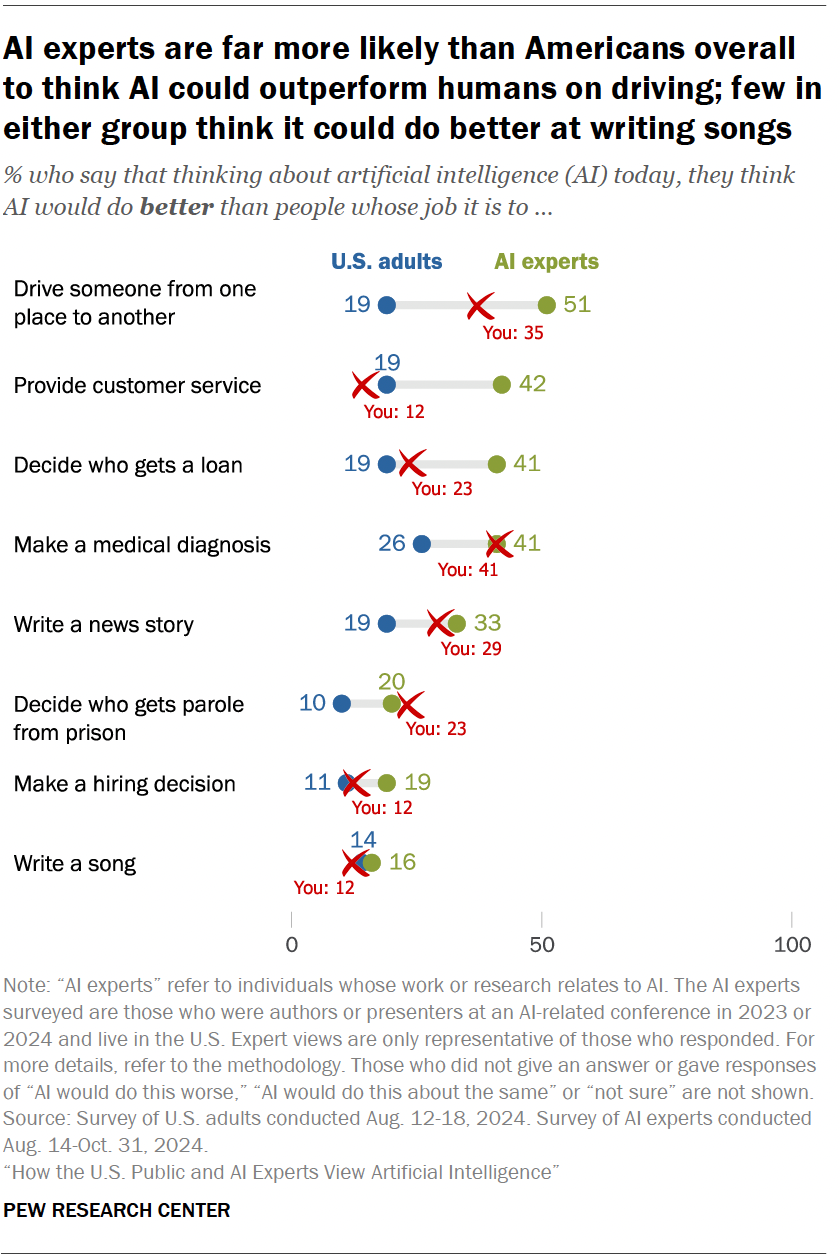
Original survey results (7)

- Your results
- Negative: 18
- Positive: 23
- Equally positive and negative: 53
- Not sure: 6
Original survey results (8)
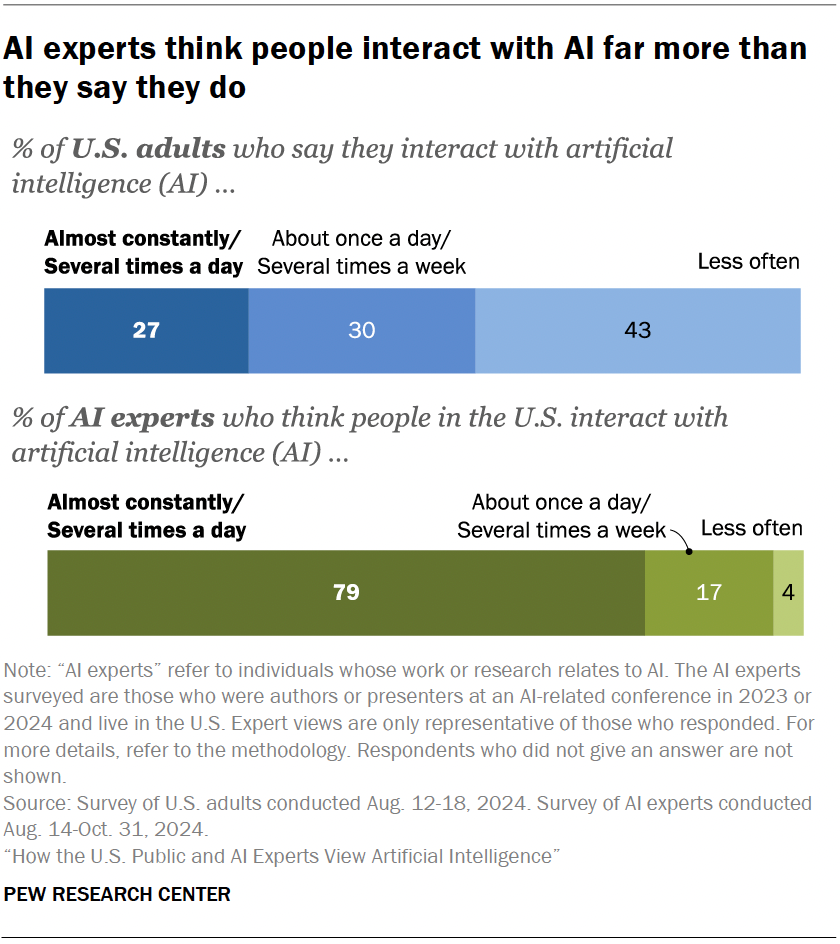
- Your results - How often do you interact with AI?
- Several times a day: 41
- About once a day / several times a week: 53
- Less often: 6
- Your results - How often do you think other students in this class interact with AI?
- Several times a day: 88
- About once a day / several times a week: 12
- Less often: 0
Original survey results (9)

- Your results
- Not go far enough: 47
- Go too far: 30
- Not sure: 23